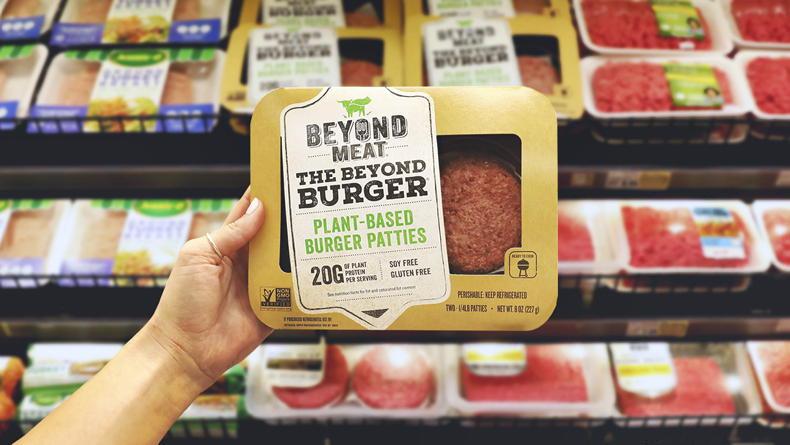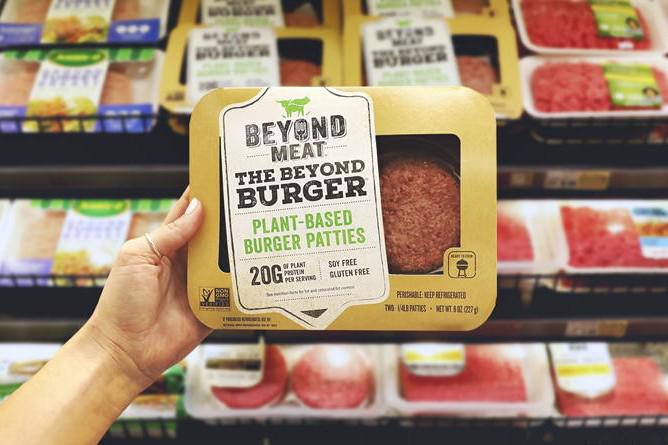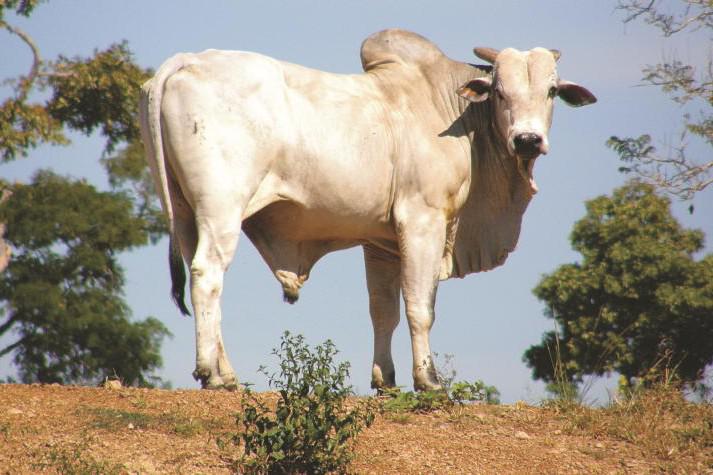The past year has been challenging, to put it mildly, for companies engaged in producing meat alternatives, but it would be wrong for farmers to dismiss them as a passing fad.
Beyond Meat is one of the more high-profile companies producing meat substitutes. Despite the profile and general positive publicity, it has struggled to maintain sales in 2021.
When it flagged disappointment with revenue for the third quarter in October, its share price dived.
Revenue for the third quarter turned out to be 13% ahead of the same period in 2020 at $106m (€94m), but this was well below the expected $120m to $140m (€106.4m to €123.8m) that had been guided. Losses also increased three-fold on the same quarter in 2020 at $54.8m (€48.4m).
Irish beef and sheep producers will take satisfaction from the fact that the market for alternative meat products hasn’t caused the collapse of the traditional meat market.
The performance of the traditional meat companies was exceptional in 2021, with huge profits reported for each quarter in the year to date.
Alternative meats cannot be dismissed
Yet it would be wrong to dismiss alternative meats as not being a future creditable competitor to beef, lamb, pig and poultry meat.
As well as blaming COVID-19 for the poor third quarter performance, the company also blamed its distribution network for not driving supplies.
The company moved in recent weeks to recruit Doug Ramsey, who will serve as the company’s new chief operating officer, and Bernie Adcock will join as the chief supply chain officer. Both have decades of experience with Tyson Foods, the second-largest meat producer in the US.
Meat companies hedging bets
There is actually an interesting back story between Tyson and Beyond Meat.
Previously, Tyson had been an investor in the company before it decided that it would develop its own meat alternatives. This strategy is one of the reasons why businesses dedicated to exclusively using non-meat products to produce an alternative have struggled.
All of the major meat companies globally have been building a non-meat alternative in their business, either generically or combined with acquisitions.
Two particular examples come to mind – the JBS acquisition of the Dutch plant-based company Vivera and, more recently, the buy-in by McCain’s, a general food company, to Strong Roots, the Irish plant-based business.
The reality is that while meat consumption has proven remarkably resilient in the face of negative publicity, it will have to deal with alternative products in the protein space for the long term.
Sustained growth for meat in Asian markets will help offset any gradual reduction in EU consumption, so it will be a case of meat and substitute products being offered side by side, with consumers ultimately making the choice.










SHARING OPTIONS